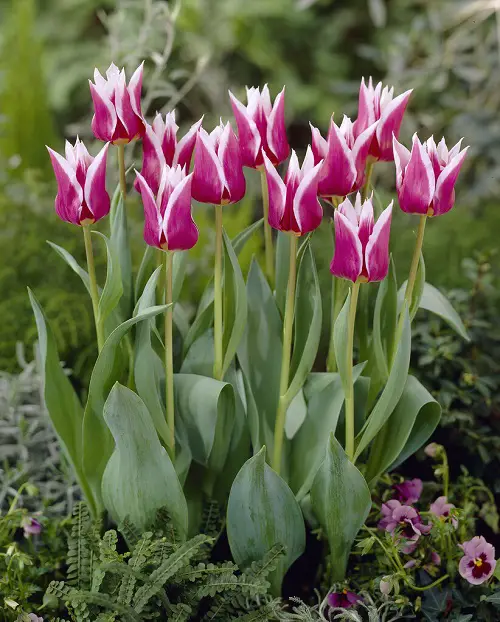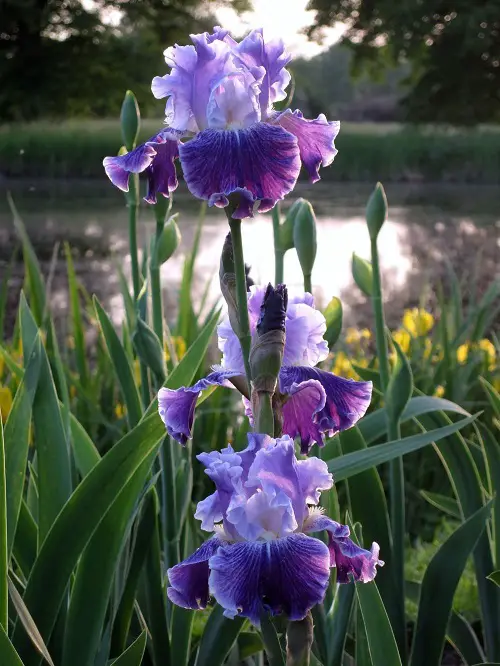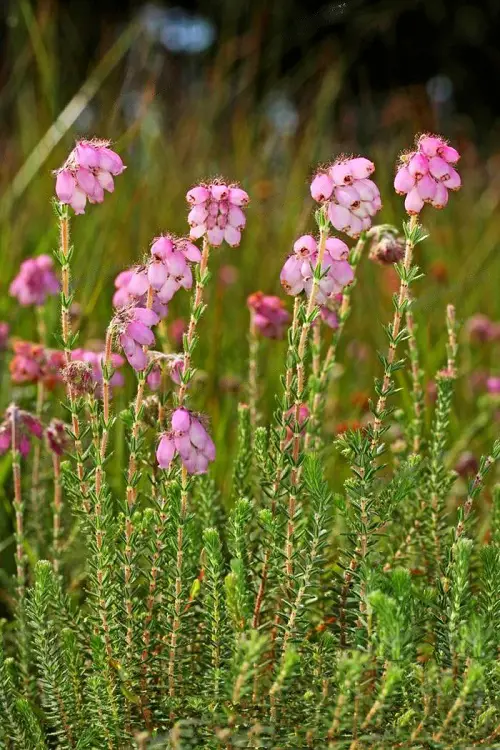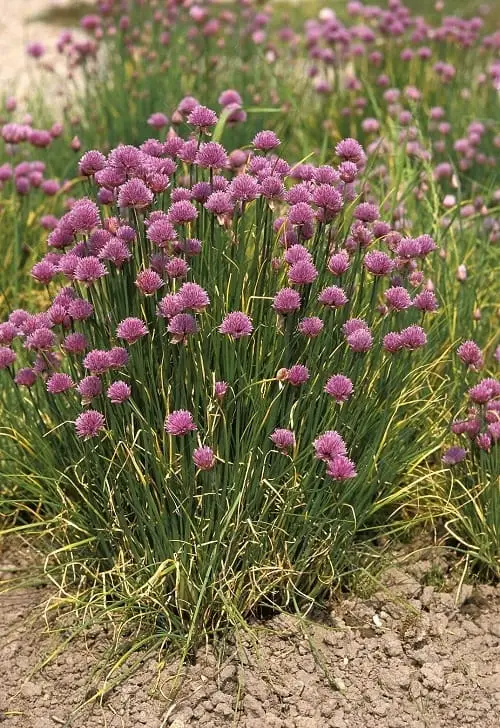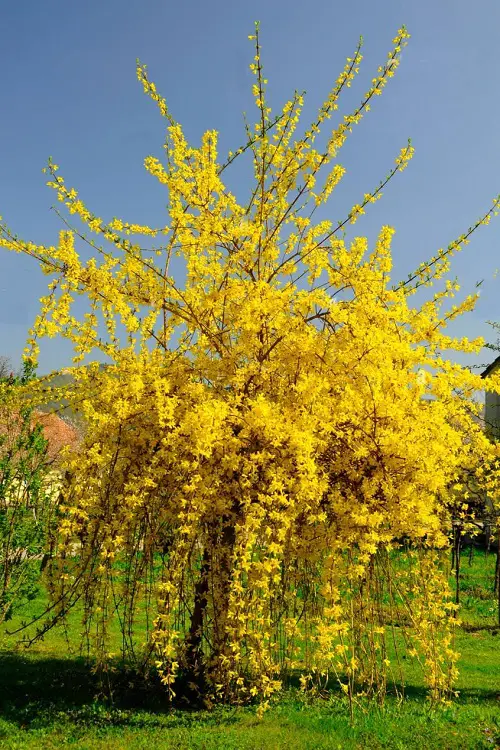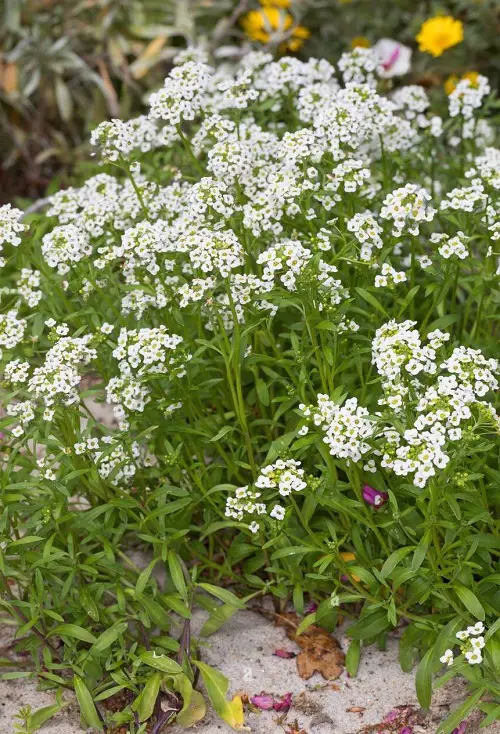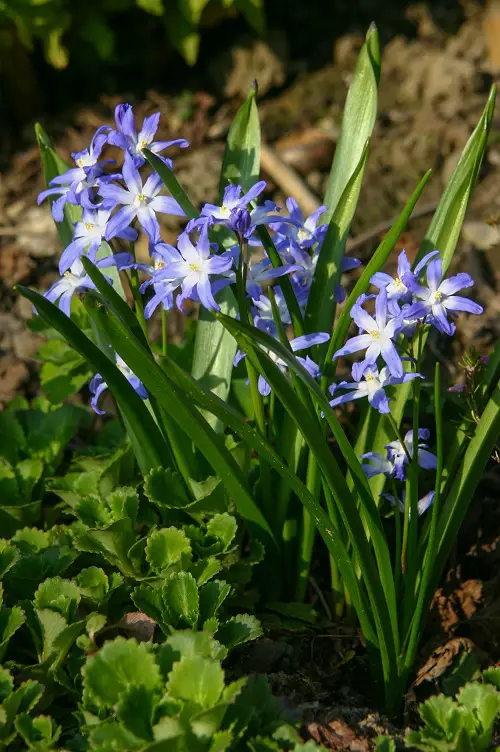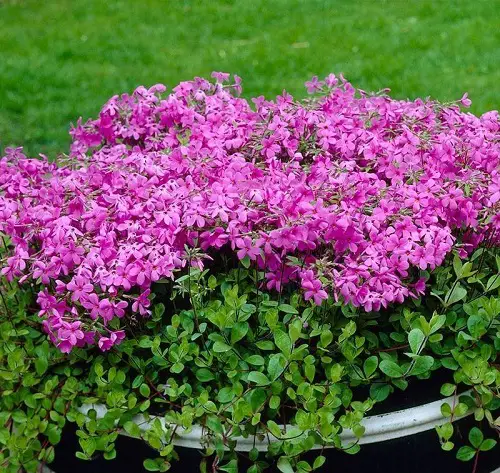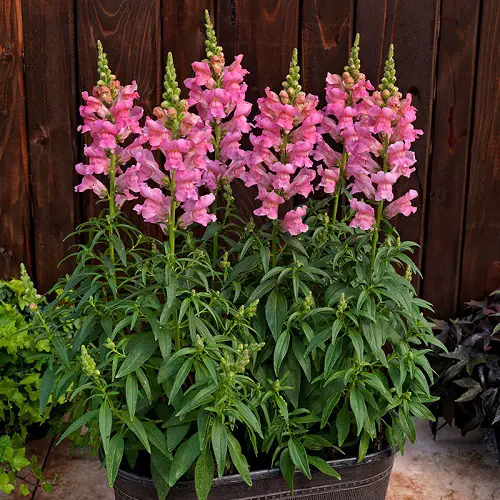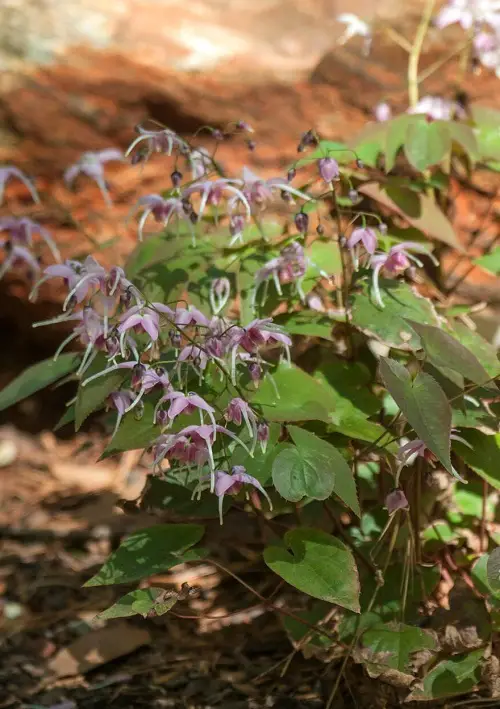Check out the list of Best Spring Flowers for a burst of colors and fragrance in your garden! These are also easy to maintain!
If you are searching for pretty spring blooms for your garden, then check out the below list, which comprises Best Spring Flowers.
Do These Things in February To Have a Great Garden in Spring
Best Spring Flowers
1. Snowdrops
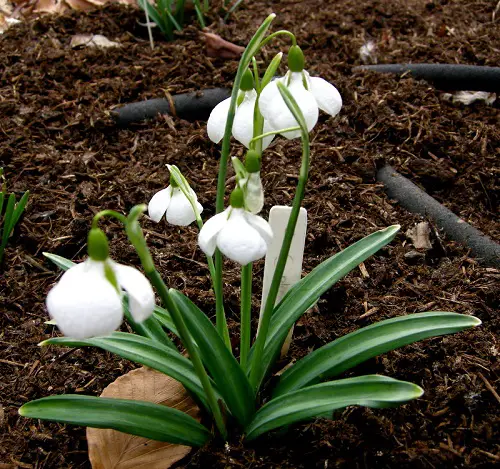
Botanical Name: Galanthus spp.
This early spring flower often starts blooming in January. Select from species Galanthus nivalis for large cultivars with varying flower shapes like Galanthus ‘S. Arnott’ and Galanthus elwesii ‘Abington Green’.
2. Crocus
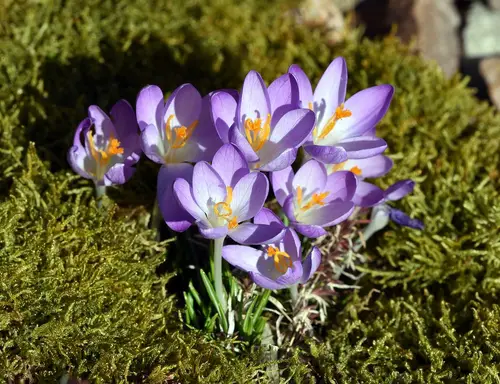
Botanical Name: Crocus tommasinianus
Crocuses provide a multitude of pollen for early queen bumblebees. Many crocus blooms are purple, but yellow and white varieties are also available.
3. Daffodils

Botanical Name: Narcissus spp.
The delightful yellow blooms appear in the toughest conditions. The wide range of flowers opens in white and salmon pink varieties, tall and dwarf ‘Tete-a-Tete, and early and late flowering species.
4. Primrose
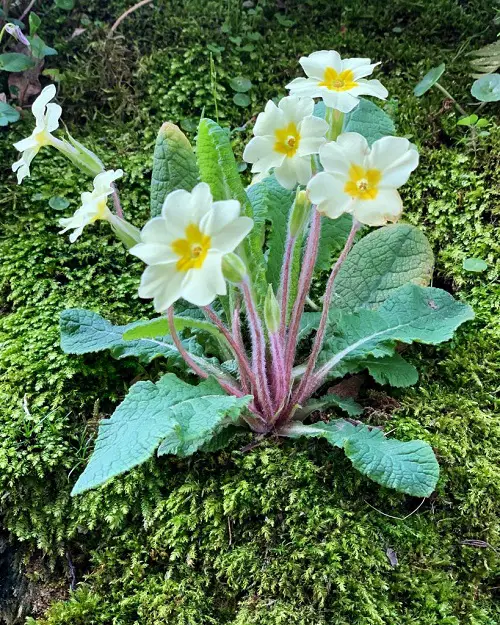
Botanical Name: Primula vulgaris
Over time, primroses can grow into clusters that can be divided and replanted for a more abundant display. There are also cultivated varieties known as “polyanthus,” which come in a range of colors, including bright purple, red, and pink.
5. Tulips
Botanical Name: Tulipa spp.
This popular spring flower opens in a range of shades and sizes. You can add drama by pairing white and maroon tulips together. For a distinct look, buy peony-flowered and frilled tulips.
Look at the Perennial Flowers That Bloom From Spring to Fall Continuously
6. Forget-me-nots
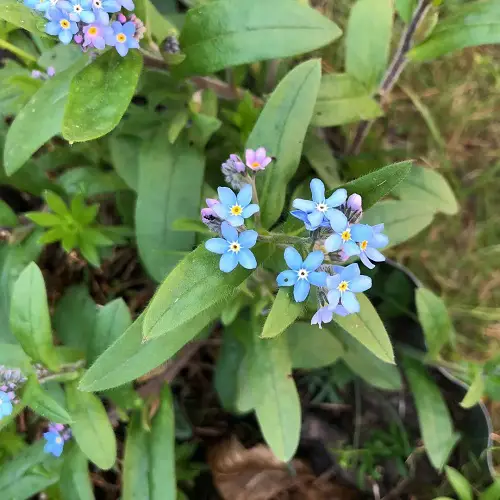
Botanical Name: Myosotis sylvatica
This low-growing blue flower looks great when planted at the front of a border or paired with daffodils and tulips. They self-seed but look shabby after blooming, so it’s best to pull them out.
7. Wallflowers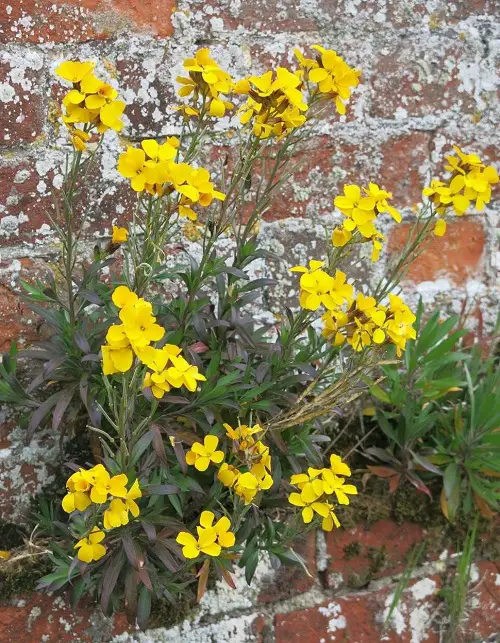
Botanical Name: Erysimum cheiri
Wallflowers are biennial plants; to ensure blooms the following spring, they should be sown in late spring or purchased as bare-root plants for planting in the fall.
8. Snake’s head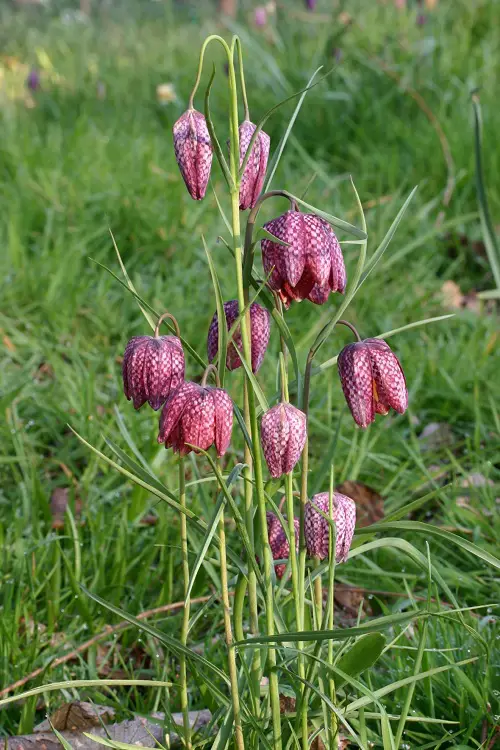
Botanical Name: Fritillaria meleagris
This stunning bulb from the lily family blooms in the spring. It boasts flowers with a checkered design, available in various shades of mauve, pink, and even white.
9. Hyacinth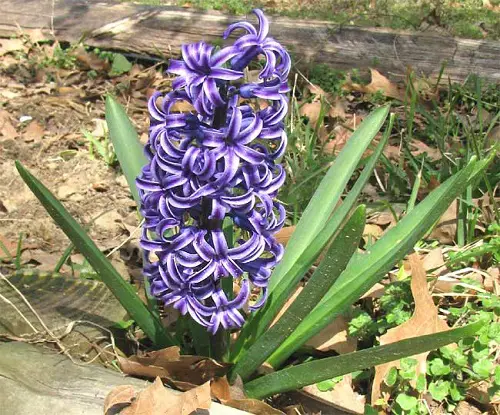
Botanical Name: Hyacinthus
This fragrant, charming spring bloomer gives an old-fashioned look. It offers a blast of spring hues in purple, white, and pink shades. The flower appears from March to April.
10. Lungwort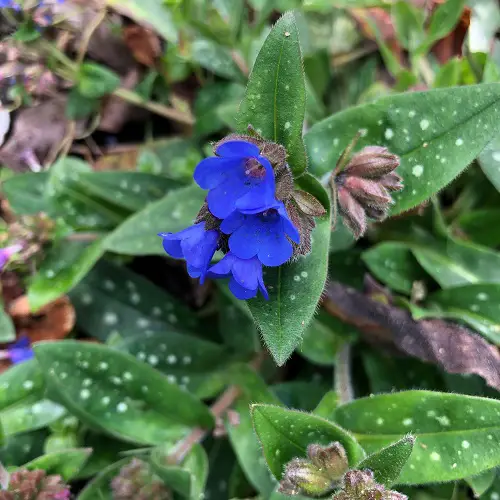
Botanical Name: Pulmonaria
This beautiful perennial herb thrives in shadier areas compared to other spring blooms. It produces either purple or pink flowers and is a popular choice for the Hairy Footed Flower Bee, one of the first species to awaken from hibernation in the spring.
Check out Spring Flowering Bulbs To Plant This Fall
11. Reticulate iris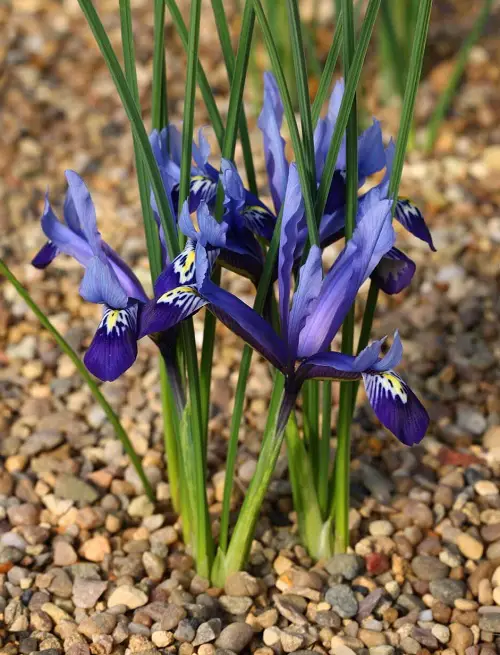
Botanical Name: Iris reticulata
Reticulate Irises are popular for their early blooming and fragrant purple flowers with yellow markings.
12. Hellebores
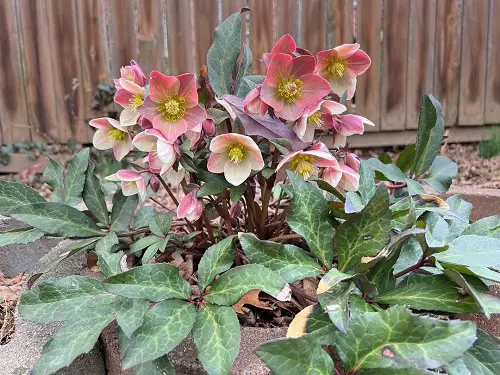
Botanical Name: Helleborus spp.
This winter-to-spring bloomer comes in various colors, including white, pink, and dark purples. There are many different types of hellebores to choose from, such as the Christmas Rose that blooms earliest and the Helleborus Niger. Another option is the Hellebore Hybrids, which bloom later.
13. Bearded Iris
Botanical Name: Iris germanica
The Bearded Iris produces striking blooms from May to June. The flowers are composed of both large outer petals (ruffs) and inner petals (falls). The plant gets its name from the hairs that grow along the center of the falls.
14. Heather
Botanical Name: Erica spp.
Winter and Spring Heathers (Erica carnea and Erica Tetralix) bloom during a time when there are few other flowers in bloom and are attractive to bumblebees.
15. Grape Hyacinth
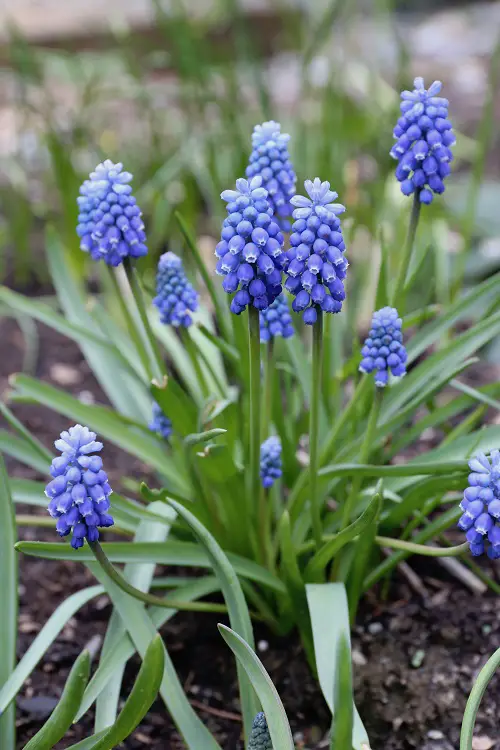
Botanical Name: Muscari
Also known as Muscari, they are tiny bulbs that produce cheerful blue flowers in the spring. Despite the similar name to regular hyacinths, they are not related. These bulbs are versatile and can be planted in pots, at the front of a border, or even on a lawn.
Look at the List of Hawaiian Flowers
16. Winter Aconite
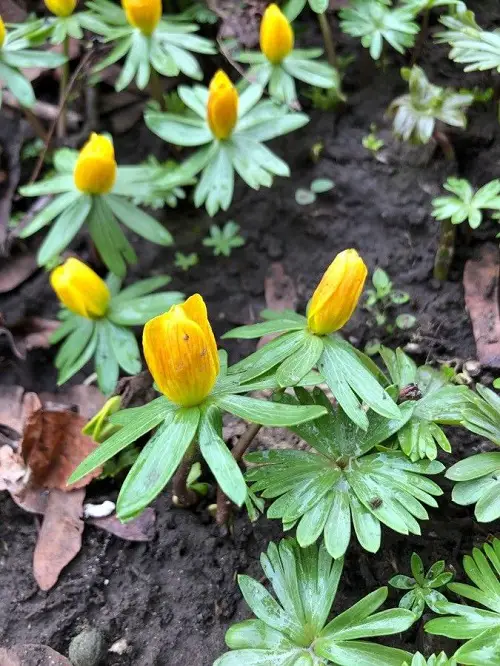
Botanical Name: Eranthus hyemalis
This perennial blooms early and features pretty yellow flowers. They pair well with Snowdrops. When planting, select a location that receives either full sun or partial shade and has soil that is moist but also drains well.
17. Alliums
Botanical Name: Allium spp.
Alliums are perennials that grow from bulbs and feature spherical, purplish blooms that appear from late spring to summer. They are a favorite of bees and are often used in both fresh and dried flower arrangements.
18. Pasque Flower
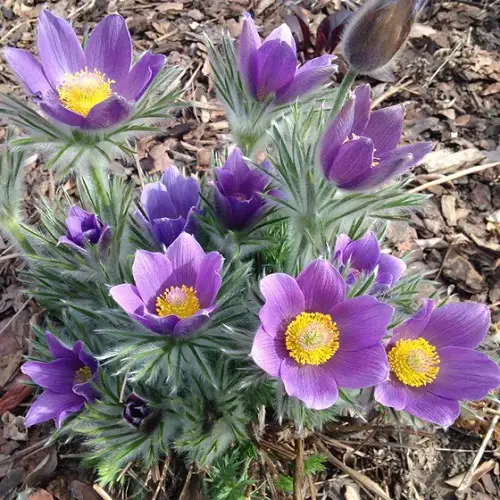
Botanical Name: Pulsatilla vulgaris
The captivating bloom traditionally represents Easter and flowers in late spring; the silky purple star-shaped flowers stand out against its delicate fern-like foliage.
19. Lily of the Valley
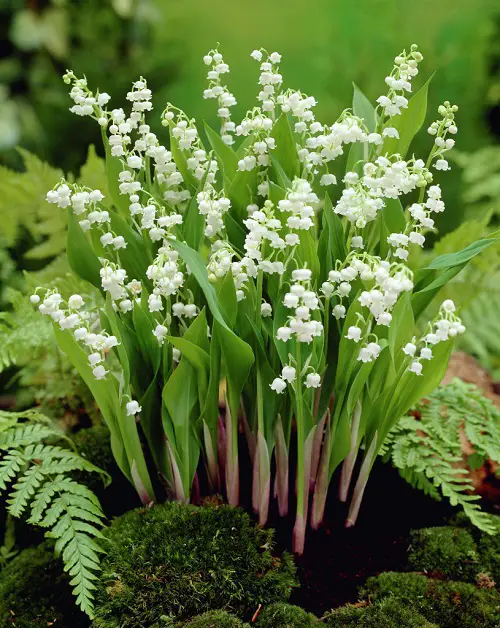
Botanical Name: Convallaria majalis
This low-growing perennial plant has delicate, white, bell-shaped flowers that grow along arching stems. It is ideal for shady areas and woodland gardens and its attractive blooms make it a popular choice for cut flowers.
20. Foxgloves
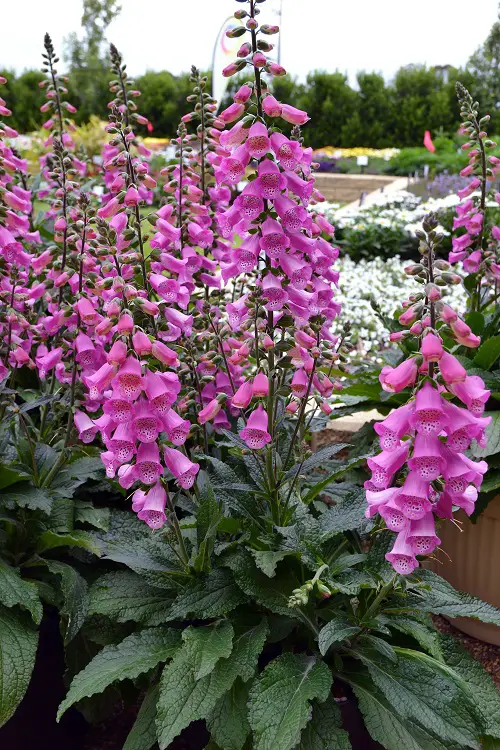
Botanical Name: Digitalis
This perennial blooms from late spring to early summer. Foxglove is known for its distinctive tubular flowers in shades of pink, purple, white, and orange. The inside of each blossom is adorned with unique spots.
Most foxgloves are biennial, meaning they flower and produce seeds in their second year of growth, but there are now also perennial varieties available.
Discover Irish Flowers for Gardens and Homes
21. Weigela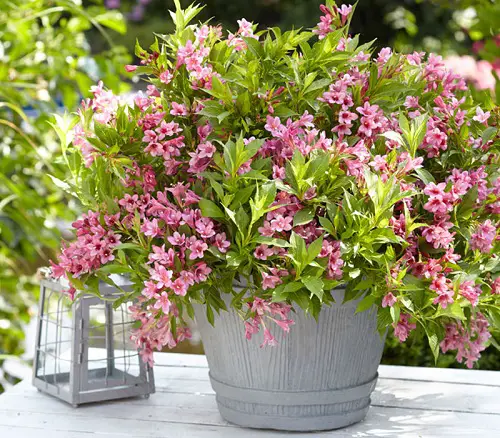
Botanical Name: Weigela
These cheerful, pink, and white trumpet-shaped flowers are ideal for the spring season and are best planted during that time. They thrive in full sun but can also adapt to partial shade in hot climates and will continue to bloom in the summer and fall.
22. Forsythia
Botanical Name: Forsythia
The arrival of forsythia’s vibrant yellow flowers signals the start of spring. However, older varieties can become too tall, so it’s important to prune them immediately after blooming to avoid removing next year’s buds. Gardeners with limited space may want to consider newer, compact varieties that are better suited for smaller gardens.
23. Sweet Alyssum
Botanical Name: Lobularia maritima
This delicate annual is actually quite sturdy and can withstand frost. If consistently watered, it will produce blooms from spring until the first hard freeze.
24. Rhododendron
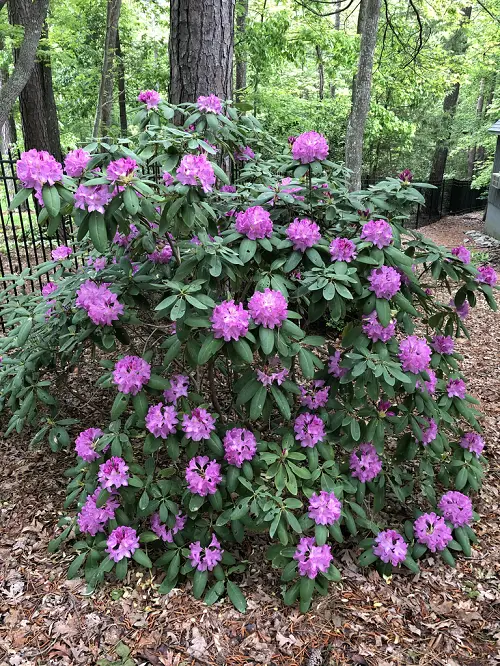
Botanical Name: Rhododendron
Rhododendrons are characterized by their shiny leaves and late spring blooms in various colors, including white, salmon, peach, pink, and purple. They can be either evergreen or deciduous, so it’s important to check the plant tag or description before purchasing.
25. Pansy
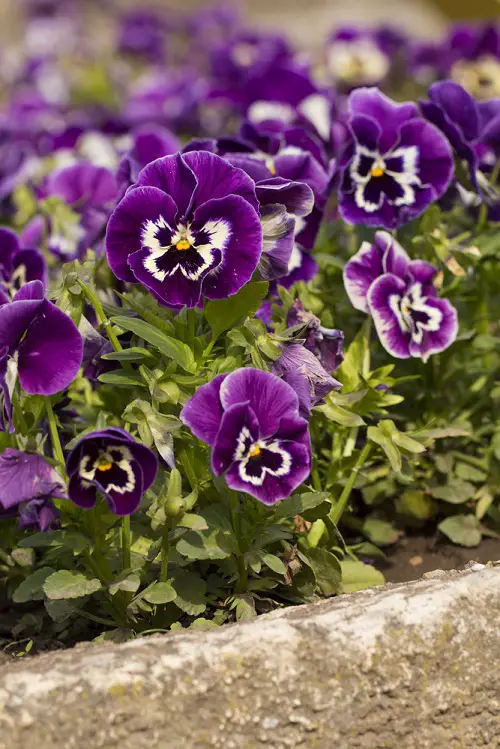
Botanical Name: Viola tricolor var. hortensis
These captivating annuals come in a wide range of colors, from bright yellow to deep crimson. Despite some cold weather, they bring a splash of color to your garden early in the season.
Discover Yellow Flowers With Five Petals
26. Glory of the Snow
Botanical Name: Chionodoxa luciliae
The charming little blue, pink, or white flowers appear in early spring. They add a charming touch to rock gardens or as borders and can spread aggressively, so it’s best to plant them in areas where they won’t get too big, like against sidewalks.
27. Creeping Phlox
Botanical Name: Phlox stolonifera
Creeping Phlox is a low-growing perennial that produces tiny flowers in shades of purple and pink in the middle of spring. It is best planted on slopes or in rock gardens and requires full sun to flourish.
28. Snapdragon
Botanical Name: Antirrhinum majus
This robust annual is available in a variety of pastel to deep colors. It is more tolerant to cold weather than some other annuals, making it an excellent option for spring color.
29. Epimedium
Botanical Name: Epimedium
Also known as bishop’s cap, this perennial offers delicate fairy-like wings in early spring. It is best planted in a location free from foot traffic and with partial shade.
30. Lupine
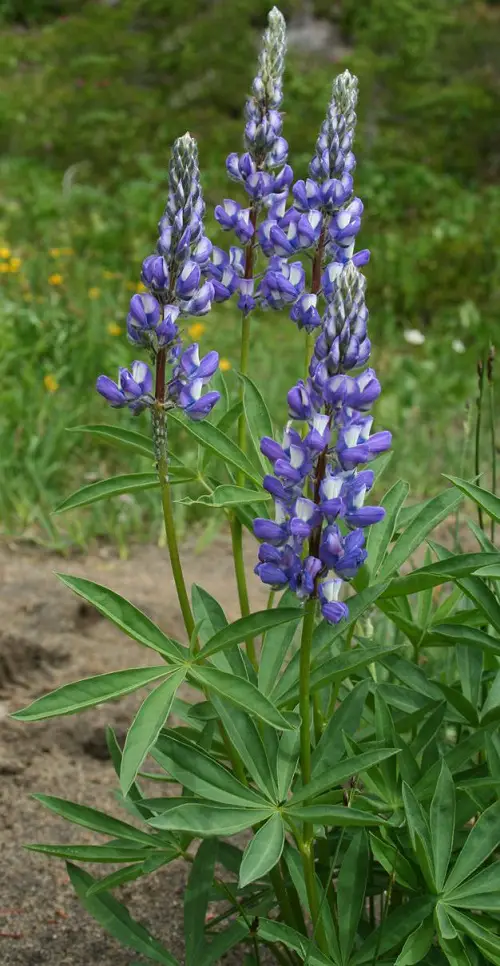
Botanical Name: Lupinus
This elegant perennial is characterized by its tall spikes of attractive flowers that attract pollinators. Lupines thrive in partial to full sun.


